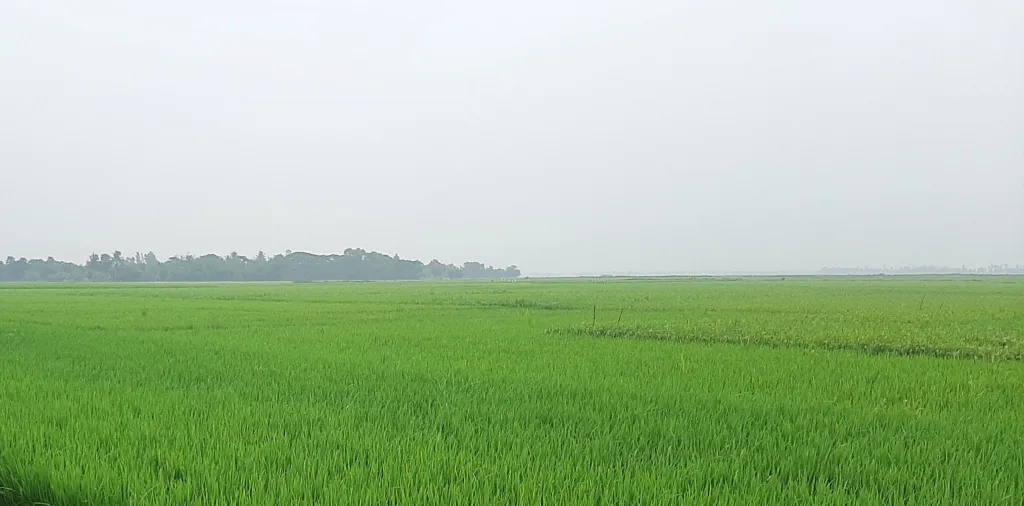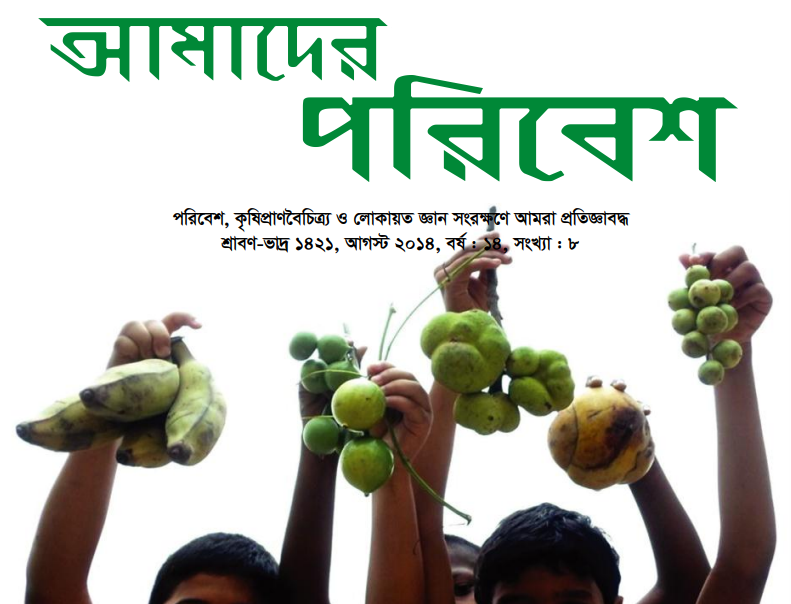Gazi Al Imran from the coast
The communities in the coastal area many times suffer due to repeated natural disasters, flooding, unplanned shrimp farming and saline water intrusion into the agricultural lands. This leads the communities to change their occupations and migrate to other areas for searching of livelihoods. Due to lack of employment in the area, the tendency of people to migrate to other places is increasing day by day. However, in the past, the agriculture works were very good and prosperous at Kultali-Dhankhali area of the Shymanagar upazila but due to the increase in salinity and lack of fresh water the condition got worsen day by day and this compelled the low-income unemployed people to leave their area in search of works.
The communities in the coastal areas every year face the severity of saline water due to the fragile dams. Besides, unemployment is increasing in the area due to lack of agricultural works. As salinity increases, freshwater scarcity threatens agricultural systems. In such a situation, the farmers demanded to bring back the agricultural system in the area by digging ponds and swamps which could ensure fresh water for cultivation.
In order to bring back the rich condition of agriculture, the local people try excavate multiple canals in the area. The natural water bodies in Kultali area, which have been illegally encroached for a long time, are slowly returning to their normal state. This creates opportunity for farming and employment as well as makes the area greener that the recent past. Thus, fields full of different types of rice as well as vegetable fields are now seen at the surrounding of the village. The overall picture of the whole area has started to change in just three years due to the initiatives taken by the local communities.

However, the communities had to struggle to retain the past picture of their village. Since the natural reservoirs were in the possession of various influential persons, it was not possible to restore them at once. The communities contacted and communicated with the upazila administration and even the district administration persuaded them to take actions to rescue the canals and natural water bodies. The local communities did not only communicated with the administrations and but also involved the different social, community based organizations and civil society in their movement. The non-governmental organization CNRS provided them financial and legal support to restore natural water bodies. At the same time, the non-governmental development organization BARCIK along with the CNRS conducted various advocacy campaigns and collaborated with advocacy groups and their affiliates to restore natural water bodies and implement various programs. This leads the communities to win the legal battle. As a result of excavation of 3 and 4 canals recovered in Kultali area, the local people are now cultivating three crops instead of one crop every year.
The local communities wanted to free up all the wetlands and save fresh water by excavating. According to them, since the area is a disaster prone area, many people are forced to move out of the area for work due to the effects of climate change. So if they can work in the agricultural work, they would not leave their native lands and the nature and environment of the area will be healthy through the sustainable agriculture practices of the farmers.
The movement of the local communities has arranged them good results in 2019. Following the appeal of the local community, the upazila administration opened the 1km long canal from the hands of the local influential persons and declare it as open natural resources which can be used by all. After the opening of the canal, women and men of the area are seen fishing with nets. Similarly, various positive aspects have been observed in different places of Munshiganj Union presently. Excavated reservoirs have been used as freshwater reservoirs to support the production of various crops.

Applauding such an initiative by the local community, similar initiatives were also seen from other areas. Kultali villagers have proved that if the initiatives taken by the local community are implemented, the area will develop.
Upazila Agriculture Officer Agriculturist Enamul Islam said, “I think that there will be a revolution in the agriculture of the area as various reservoirs in the area have been freed from encroachment and are being re-excavated.”

Upazila Nirbahi Officer (UNO) Md. Akhter Hossain said, the people of Kultali village have proved that public initiative can bring positive change in an area. However, I believe that the initiative will bring about a positive change in the agriculture of the area.’
Translated by Silvanus Lamin

